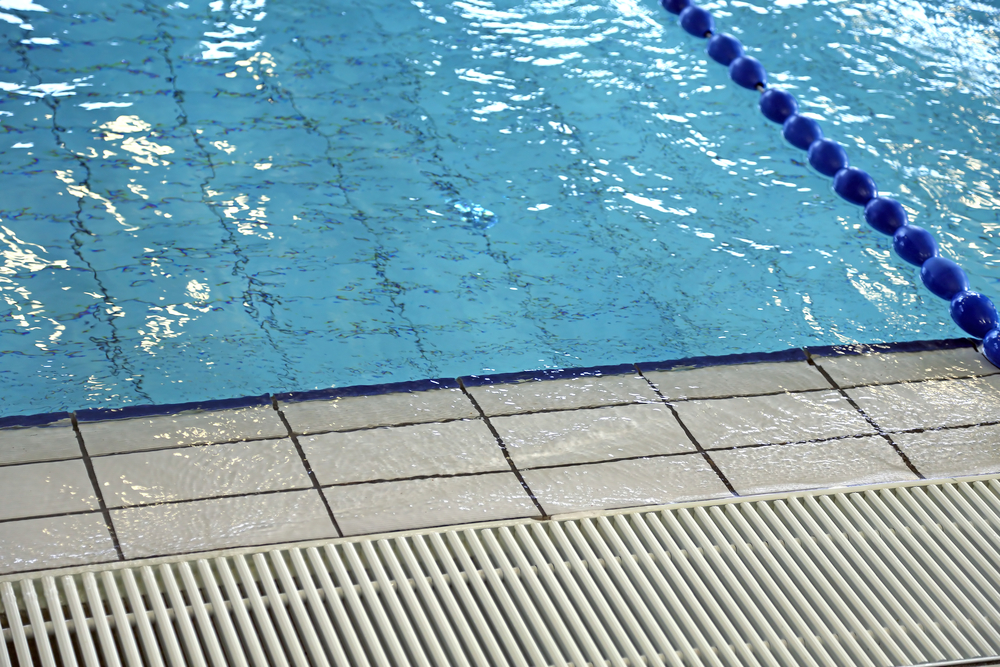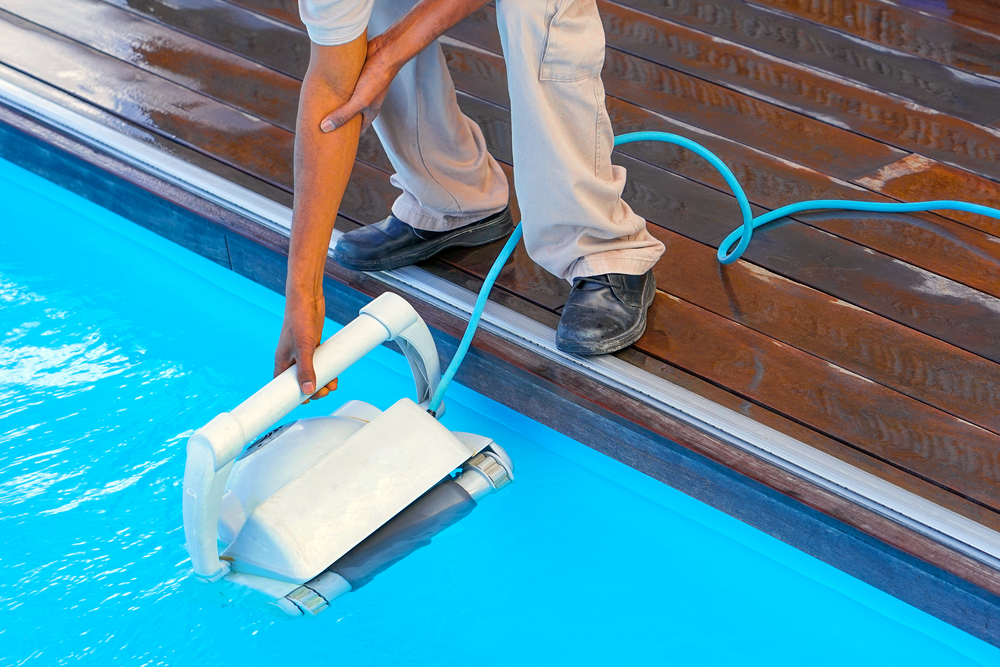You’ve got your pool, and you’re set for summer. But wait, have you thought about your pool’s circulation? It’s not just about keeping the water moving; it affects everything from water clarity to hygiene.
Don’t let poor circulation ruin your swim party! In this article, we’ll explain why good circulation is vital and give you tips on how to optimize it.
Dive in and take control of your pool’s health today!
The Importance of Proper Pool Circulation
It’s crucial to understand that proper pool circulation isn’t just about keeping the water clean. It’s also about maintaining a healthy swimming environment. The importance of circulation lies in its role in sanitation and energy efficiency implications.
Circulation’s role in sanitation is paramount. You see, each corner of your pool requires adequate exposure to sanitizing chemicals. Without optimal flow, certain areas become stagnant and a breeding ground for bacteria and algae. Your skimmers can’t scoop up debris effectively if the water isn’t moving well. Additionally, poor circulation leads to inconsistent chemical distribution which may cause skin irritation or other health issues.
On another note, understanding the energy efficiency implications of proper circulation can save you money. A well-circulated pool allows your heating system to work less strenuously as heat is evenly distributed throughout the water body. This reduces energy consumption and thus lowers your utility bills.
In essence, optimizing your pool’s circulation enhances both cleanliness and cost-effectiveness of operation. These are two aspects you surely can’t overlook if mastery over your pool’s management is what you’re after. So pay close attention to how water flows in your pool – it matters more than you might think!

Understanding the Mechanics of Pool Circulation
Understanding the mechanics can seem complex, but they’re crucial for maintaining a clean and healthy swimming environment. The Circulation System Components form the backbone of your pool’s functionality. These components include the pool pump, filter, skimmers, returns, drain lines, and heaters.
Your pool pump is a workhorse; its efficiency determines how well water circulates in your pool. It draws water from the drains and skimmers, pushing it through the filter before returning it back to the pool. When you optimize your Pool Pump Efficiency, you ensure that every drop of water gets treated and cleaned effectively.
The filter plays an integral role as well; it removes debris from the water circulated by the pump. Skimmers help out by catching surface-level particles before they sink. Returns direct filtered water back into your pool while heaters regulate temperature for optimal comfort.
Each component needs meticulous attention to maintain peak performance. For instance, keeping your pump’s impeller free of obstructions enhances its efficiency. Regularly cleaning filters allows them to catch more debris too.
Common Problems With Pool Circulation
You’re likely to encounter some common issues with your swimming system’s flow, such as clogged filters or malfunctioning pumps. These disruptions can lead to poor water quality and an inefficient pool. Recognizing these problems early on is crucial in preventing serious damage.
When troubleshooting flow issues, you’ll need to focus first on the pump since it’s the heart of the circulation system. If it’s producing a humming noise or not running at all, you may have a faulty motor or impeller. In cases where the pump runs but doesn’t circulate water efficiently, check for blockages in your filter or skimmer baskets.
Next, assess your pool’s filter. A dirty filter restricts water flow and reduces overall efficiency. Regular cleaning will prevent this and extend its lifespan.
In situations where simple troubleshooting isn’t sufficient, consider a circulation system overhaul. This involves replacing worn-out components like pumps or filters to enhance performance and efficiency. Remember that while this process can be costly initially, it pays off in the long run through reduced maintenance costs and improved pool health.
Practical Steps to Enhance Pool Circulation
To boost your system’s efficiency, there are practical steps you can take. First, maintain clean filters and regularly check your pump. Regular equipment maintenance is vital to keep your pool circulation at optimal levels. However, it doesn’t end there.
A circulation equipment upgrade might be what you need for the best results. You’ll notice a significant improvement in your pool’s water quality when you upgrade to more efficient pumps and filters that are designed with cutting-edge technology. These upgrades are not only energy-saving but also ensure a steady flow of water, enhancing overall circulation.
Explore innovative circulation techniques as well. For instance, consider installing 360-degree rotating jets which distribute water evenly throughout the pool. This technique prevents stagnant areas and promotes even chemical distribution – an essential factor in maintaining crystal clear water.
Another effective step is optimizing return jet positioning. When properly positioned, these jets will guide the flow of water around the pool efficiently, minimizing dead spots.
Maintenance Tips for Optimal Pool Circulation
Let’s dive into some maintenance tips that’ll assist in keeping your swimming area’s flow at its best.
Regular inspection of your pool’s circulation system is crucial. Ensure you’re cleaning and replacing the filters as needed to prevent any blockages that can inhibit water flow.
Consider a circulation equipment upgrade if your current system is outdated or inefficient. Newer models, specifically energy efficient pumps, are designed to optimize flow while reducing energy consumption. Not only will this enhance the circulation in your pool, but it’ll also result in substantial savings on your utility bills.
Don’t overlook the importance of correctly balancing chemicals within the water either – an imbalance can lead to issues with both the quality and flow of water. Regularly test pH levels and add necessary chemicals accordingly.
Lastly, keep up with routine brushing and vacuuming of your pool. This eliminates debris that could potentially clog up your system, ensuring optimal circulation.

Frequently Asked Questions
What Are the Financial Implications of Poor Pool Circulation?
Poor pool circulation can hit your wallet hard. It increases energy consumption, raising utility bills. Additionally, it poses health risks from improperly treated water that could lead to costly medical expenses or legal troubles.
How Does Pool Circulation Impact the Longevity of Pool Equipment?
Poor pool circulation can wear out your equipment faster. By improving circulation efficiency, you’re reducing strain on the machinery, which aids in equipment maintenance and prolongs the lifespan of your pool components.
Can the Design or Shape of the Pool Affect Its Circulation?
Yes, the pool’s design significantly impacts its circulation. Circulation friendly materials and pool orientation impact water movement. An optimally designed pool ensures efficient flow, reducing strain on equipment and enhancing water clarity and hygiene.
Are There Specific Pool Circulation Concerns for Saltwater Pools Compared to Freshwater Pools?
Yes, saltwater pools have specific circulation concerns. You’ll need to monitor saltwater maintenance more closely, as chlorine levels can fluctuate dramatically due to the nature of the salt-chlorine conversion process.
What Are Some Environmental Consequences of Poor Pool Circulation?
Poor pool circulation increases health risks as stagnant water breeds harmful bacteria. It also escalates chemical usage, harming the environment by creating toxic runoff. So, you must ensure efficient circulation for a healthier, greener pool.
